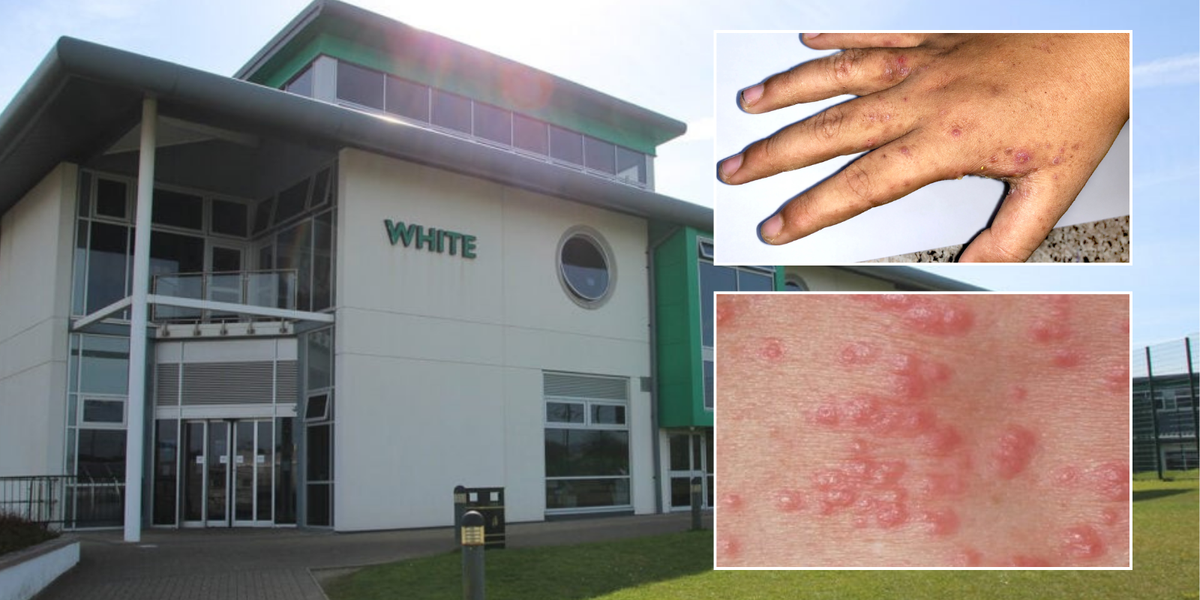A health warning has been issued at a sixth form college in Cornwall after the school reported an outbreak of scabies.
Several students at Truro and Penwith College’s Truro campus have been diagnosed with the infectious disease, prompting officials to issue a health alert to parents and guardians.
The outbreak comes as cases of scabies are surging across the country, with hospital diagnoses jumping by 73 per cent compared to last year.
The parasitic skin condition, which causes an intensely itchy rash, is transmitted through prolonged skin contact and can spread via shared items like towels, bedding and soft furnishings.
Several students at Truro and Penwith College’s Truro campus have been diagnosed with scabies
TRURO AND PENWITH COLLEGE
The college issued a cautionary email to parents on Monday, December 9, outlining the situation and necessary precautions.
The email explained that scabies is caused by a small mite that lives in the skin and spreads through prolonged or frequent contact with infected individuals.
And though the alert has been ‘active’ for almost a week already, parents have been warned that symptoms can take up to eight weeks to appear after infection.
“If your child has or develops symptoms… An itchy rash that is worse at night or when they are hot, please see your GP and let them know that they have been in contact with someone who has scabies,” the college advised.
LATEST HEALTH UPDATES FROM GB NEWS:
Cases of scabies are surging across the countr
NHS
The alert emphasises that if scabies is diagnosed, all household members must be treated simultaneously, regardless of whether or not they show symptoms.
According to NHS guidance, scabies typically affects the body while sparing the head and neck, with rashes commonly appearing between fingers, on wrists, under arms, and around the waist and groin areas.
The elderly and young children may develop rashes on their heads, necks, palms and feet.
A more severe form of the disease called crusted scabies can affect those with weakened immune systems, presenting as a crusty rash on elbows, knees, hands and feet.
NHS guidance details how scabies typically affects the body while sparing the head and neck, with rashes commonly appearing between fingers, on wrists, under arms, and around the waist and groin areas
PA
Treatment involves applying a cream or lotion over the entire body as prescribed by a pharmacist.
Adults and children over five can return to work or school after starting treatment, but should minimise close contact for 24 hours, official guidance says.
Meanwhile, children under five should wait one day after treatment before returning to nursery or preschool.
NHS data shows that hospital cases of scabies surged to 3,689 in the year ending April 2024 – up from 2,128 the previous year.
Professor Kamila Hawthorne, chair of the Royal College of General Practitioners, noted that current numbers are “above the five-year average and rising”.
She told the BBC: “While not a serious condition, scabies can be very itchy and irritating. If not properly treated, it can spread and increase a patient’s risk of complications, such as secondary skin infections or make existing skin conditions worse.”

